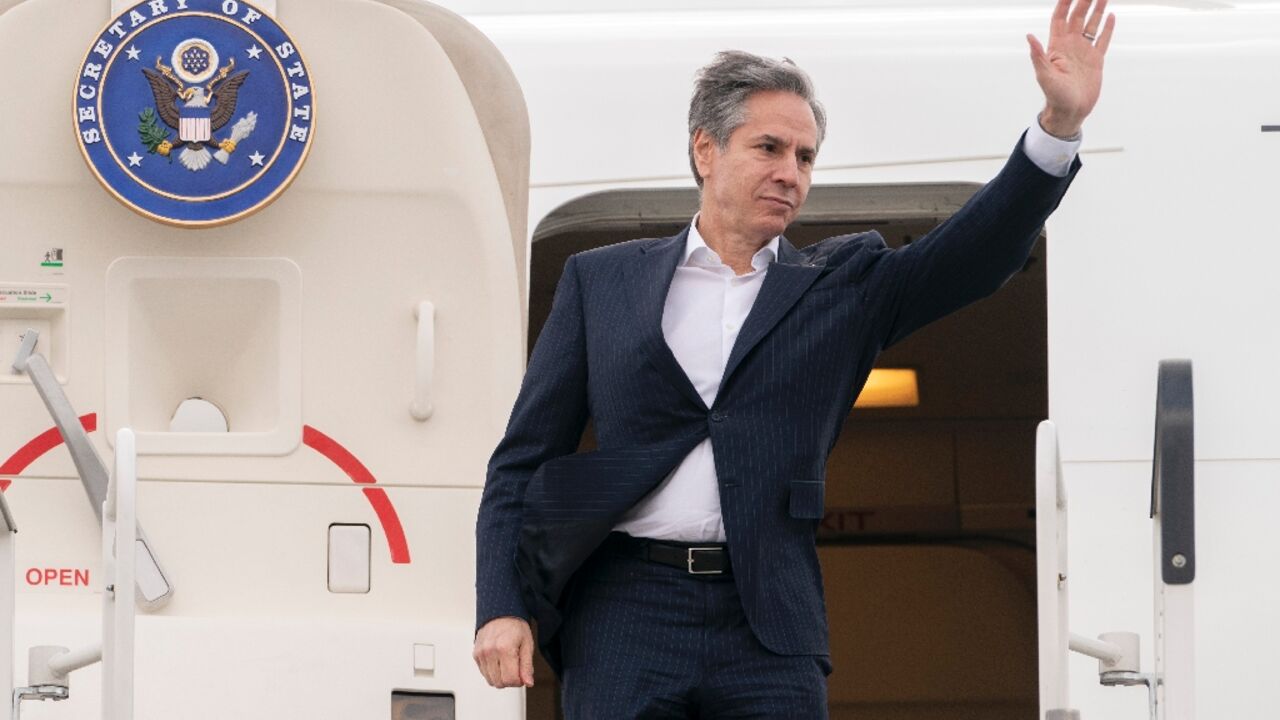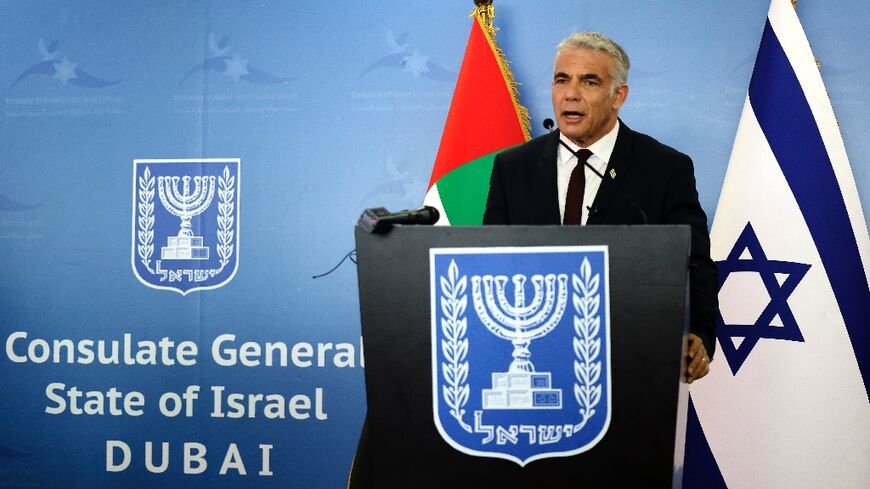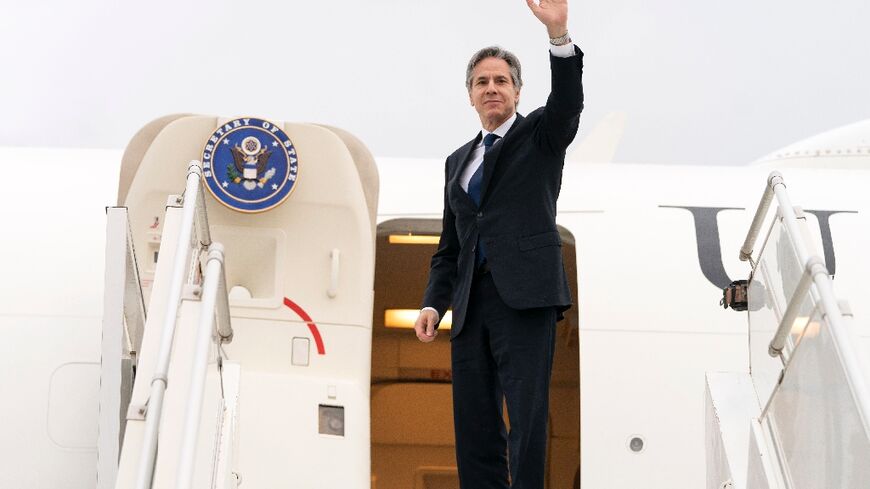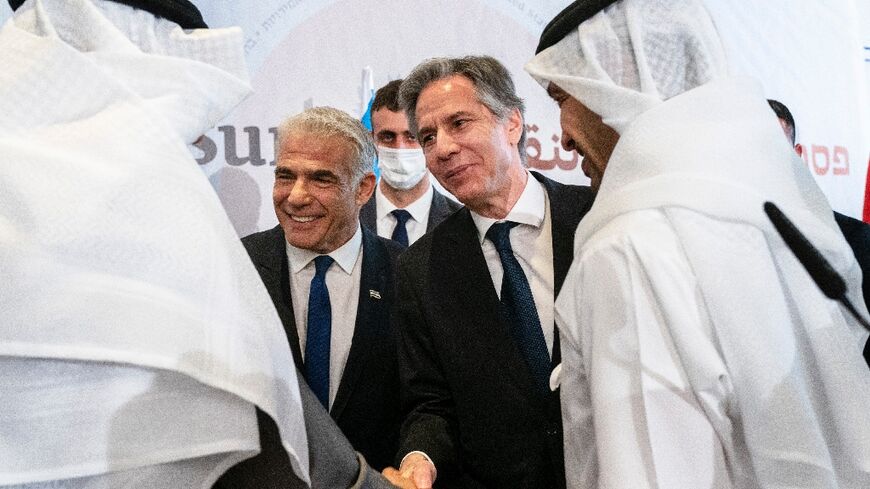US top diplomat in Israel for landmark Arab talks

US Secretary of State Antony Blinken arrived in Israel Saturday for landmark talks with Arab countries which normalised relations with the Jewish state in the US-brokered Abraham Accords.
Top diplomats of the US, Israel, Morocco, Egypt, Bahrain and the United Arab Emirates will meet in the Negev desert Sunday and Monday to mark the shift in Arab-Israeli relations that began in late 2020.
Blinken's visit, the first stop in a trip that will also take him to the West Bank, Algeria and Morocco -- where he will hold talks with the UAE's de facto ruler, Abu Dhabi Crown Prince Mohammed bin Zayed -- is focused in part on building support for Ukraine after the Russian invasion.
US officials say two other key issues are on the agenda for the trip: quelling the Jewish state's worries about a looming nuclear deal with Iran, and discussing the potential global wheat shortage caused by the Ukraine war that could deal a heavy blow to the import-dependent Middle East.
"We know this pain is keenly felt in the Middle East and North Africa, where most countries import at least half of their wheat," much of it from Ukraine, State Department Acting Assistant Secretary Yael Lempert said ahead of the trip.
The war "will only continue to increase the price of basic staples like bread in the region, taking money from the pockets of the hardest working and most vulnerable families," she said.
- Worries over Iran nuclear deal -
The trip comes as the United States and Iran are in the final stages of negotiating a revival of the 2015 Joint Comprehensive Plan of Action, which aimed to prevent Tehran from developing a nuclear weapons capacity.
The administration of former US president Donald Trump quit the deal unilaterally in 2018 and reimposed punishing economic sanctions, and Iran has since resumed many of its sensitive nuclear activities.
US officials say reaching a deal hinges on one or two key issues, but that Tehran has to make "difficult choices" if it wants an agreement.
But the possible deal worries Israel and US allies in the Gulf, who see Iran as a menace.
In February, Israeli Prime Minister Naftali Bennett said he was "deeply troubled" by the prospect of a new nuclear deal, which Israel fears would not prevent Iran from developing a nuclear weapon.
Ahead of the talks, Bennett sent a rare message to regional powerhouse Saudi Arabia, expressing "sorrow" over a wave of attacks by Iran-backed Yemeni rebels on Friday that hit targets, including an oil plant that turned into an inferno near the Formula One race in Jeddah.
"This attack is further proof that Iran's regional aggression knows no bounds," Bennett wrote on Twitter late Saturday.
- Talks with UAE -
Blinken will also meet Palestinian president Mahmud Abbas in Ramallah in the Israeli-occupied West Bank.
Palestinians remain concerned that they are being forgotten in the US-backed push for Arab governments to boost relations with Israel and focus on Iran as their principal threat.
The Trump administration slashed support for the Palestinians and closed the US consulate in Jerusalem dedicated to Palestinian relations.
Biden promised to reopen the consulate, but a year into his administration that move has not come.
The consulate issue "will certainly be a topic of discussion", Lempert said.
AFter Israel Blinken will travel to Morocco and Algeria to talk about regional security and the disputed territory of Western Sahara, which has divided the two neighbours.
Also in Morocco, he will hold talks with the UAE's Mohammed bin Zayed, who has become a major political force in the region.
Talks with Mohammed bin Zayed will cover ground ranging from relations with US rivals Russia, China and Iran to the war in Yemen and skyrocketing oil prices.
"This is a valued and really important strategic relationship for us," said Lempert.





